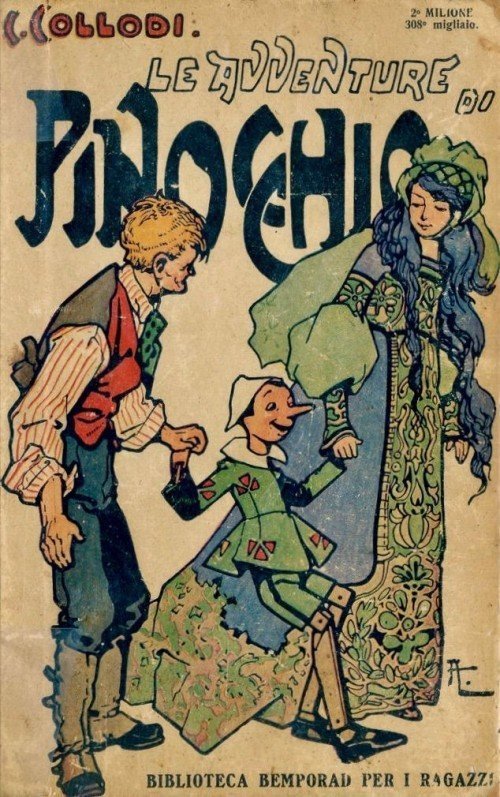Pinocchio: A Timeless Tale of Growth, Morality, and Redemption

"Pinocchio: The Classic Story of a Wooden Boy" by Carlo Collodi is a beloved children's book that has captured the hearts and imaginations of readers for generations. Originally published in serial form in an Italian newspaper in 1881, the story of Pinocchio has since been translated into numerous languages and adapted into countless plays, movies, and other forms of media.
At its heart, Pinocchio is a tale of redemption and growth. The story follows the adventures of a wooden puppet named Pinocchio, who dreams of becoming a real boy. Along the way, Pinocchio must overcome his tendency to tell lies and his selfish desires, as he encounters a variety of colorful characters, including a talking cricket, a devious fox, and a kind-hearted fairy.
One of the most compelling aspects of Pinocchio is its exploration of morality and the consequences of our actions. Pinocchio learns that every lie he tells or selfish act he commits has real-world consequences, and he must face these consequences head-on if he ever hopes to become a real boy.
Another key theme of Pinocchio is the importance of education and learning. Pinocchio's adventures take him to school, where he learns valuable lessons about the world and his place in it. He also learns about the value of hard work and perseverance, as he tries to overcome the challenges and obstacles in his path.Pinocchio is the importance of personal growth and moral development. Throughout the story, Pinocchio learns important lessons about the consequences of his actions, particularly when he tells lies or acts selfishly. As he encounters a variety of challenges and obstacles, Pinocchio must confront his flaws and work to overcome them in order to become a real boy. This theme highlights the idea that personal growth and moral development are important parts of becoming a responsible and ethical individual, and that these qualities are necessary for leading a fulfilling and meaningful life.
Ultimately, Pinocchio is a timeless story that continues to resonate with readers of all ages. Its themes of redemption, morality, and growth are as relevant today as they were over a century ago, and its characters and lessons continue to inspire and delight readers around the world.
"Pinocchio" was written by Carlo Collodi, the pen name of Italian author Carlo Lorenzini. The story was first published in serial form in an Italian children's newspaper called Giornale per i bambini (The Children's Newspaper) from 1881 to 1883. The story was a massive success with Italian children, and in 1883, it was published in a single volume titled "Le avventure di Pinocchio" (The Adventures of Pinocchio).
The book was an instant success and was translated into numerous languages, including English, French, German, and Spanish. The book's popularity grew, and it was soon adapted into plays, musicals, and films. However, the original book was much darker than many of the adaptations, and it included several violent and disturbing scenes that were often omitted in later versions.
Despite the book's success, Collodi never received much financial compensation for his work, and he died in poverty in 1890. However, his legacy lived on, and "Pinocchio" has become one of the most beloved and enduring children's stories of all time. It has been adapted into numerous films, including the famous 1940 Disney animated film, and has inspired countless other works of art and literature.
In conclusion, "Pinocchio: The Classic Story of a Wooden Boy" is a wonderful book that offers valuable lessons and insights for readers of all ages. Whether you are reading it for the first time or revisiting it as an adult, Pinocchio is a timeless tale that is sure to capture your imagination and touch your heart.